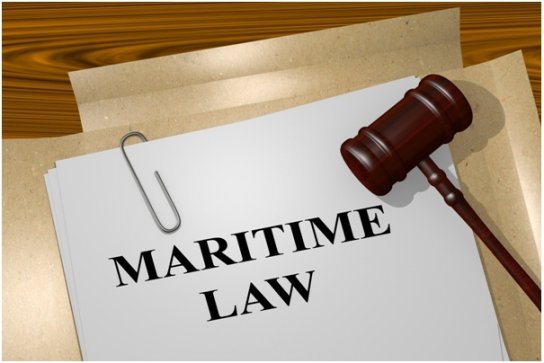There are a lot of moving parts in the industry that allows us to bring the products we need to our homes. Ferries and other watercraft are key to many businesses and industries. Maritime accidents are common, and they’re never pretty.
If you or someone you love has been generally involved in one of these accidents, you’ve come to the right place for verified information.
Read on so you can file a maritime accident claim and get back to your life as quickly as possible.

Table of Contents
Understanding Maritime Accident Regulations
The process of filing a maritime accident claim can often be complex. Understanding the applicable legal regulations is key. Maritime accidents generally fall under federal maritime law, where the definitions of terms such as ‘negligence’ and ‘injury’ differ from other types of law.
In most cases, the Jones Act, an act of Congress passed in 1920, provides a legal remedy to certain categories of individuals engaged in certain types of maritime work. The statute provides a mechanism that allows seamen who have been injured to seek damages from their employers, who are generally liable for crewmember’s injuries caused by their negligence.
Generally, in order to win a maritime accident claim, the claimant must prove that the employer was negligent and that it was the employer’s negligence that caused the accident. Victims of maritime accidents should seek qualified legal counsel to help them file a maritime accident claim and have the best chance of obtaining appropriate compensation.
Identify the Responsible Party for the Accident
This can be done by filing a complaint directly with the vessel’s owner or the company’s representative who was responsible for the accident. Additionally, it may be useful to contact the parties involved to discuss the details of the incident. This can help determine whether negligence, recklessness, or other factors contributed to the incident.
In some cases, the responsible party may admit to liability and offer a settlement. If a settlement is not available, the next step is to develop a case for why the other party is responsible.
Filing an Official Accident Report With Authorities
When filing a maritime accident case, the details of the accident should be reported accurately. It is important to include pictures and diagrams when available, to better illustrate the accident.
It is also important to provide contact information for any witnesses and other parties involved in the accident. The accident report should also include a
- Copy of the relevant maritime laws
- Regulations applicable in the jurisdiction
You must submit the report to the maritime authorities alongside supporting evidence within the required timeline for an effective claim.
Provide an Analysis of the Circumstances
Filing a maritime accident claim requires thorough research and analysis of the circumstances in order to ensure a successful case is often put forward. This analysis includes
- Summarize what happened
- Determine the cause of the accident
- Identify any foreseeable risks
This analysis will serve as an important element in establishing a credible legal claim. Consideration should also give to the applicable maritime laws and regulations, the type of damage incurred by the claimant, and the available compensation.
Collect and Submit Evidence
In filing a maritime accident claim, collecting and submitting evidence is a critical step. Gathering evidence must begin immediately, as some important facts can be lost or compromised over time. Physical evidence should collect first, such as
- The vessel
- Its equipment
- Any witness personal
- Some items from the accident
Any photographs taken of the scene should also be collected, along with any witness statements or testimonies. If there is an injury or fatality involved, necessary medical and police reports should be collected.
Ownership or operator documents, navigation charts, environmental or weather reports, log books, and radio transmission records may also be relevant.
This evidence must be sent to the insurance company or claims adjuster so that they can review the facts and assess the claim. All evidence collected must be handled carefully and, if necessary, documented with professional appearances and accuracy.
It must be generally presented in a clear and focused manner and should be typically accompanied by detailed written maritime accident claim documents or summaries.
Filing a Timely Insurance Claim
Filing a timely insurance claim after a maritime accident is of the utmost importance. Maritime laws are very strict, and failing to file an insurance claim within the timeframe specified by the maritime law can result in a denial of coverage and payment.
The best way to ensure that a claim is often filed on time is to prepare early. Gather all of the necessary documents, including the following
- Marine insurance certificate
- Records of the incident
- Proof of repair bills
- Medical evaluations or bills
Keep copies of all documents. Prepare a summary of the incident and attach it to the claim form for a clear review. Finally, submit the claim as soon as possible and follow up with the company should a response not be received.
By taking these steps, claimants can increase the likelihood of their maritime accident claim being accepted.
Seek Professional Legal Advice
Professional legal advice should always be sought when considering filing a claim. Meeting with an experienced maritime lawyer is the best way to make sure you have the best representation for your case.
They can review the facts of your injury and tell you if they believe you have a valid claim. Your lawyer also understands all the legal implications of filing and can help you navigate the complexities of the process.
They can help you identify the best course of action and handle any necessary negotiations or settlement issues that may arise. Professional legal advice is crucial to ensuring a successful outcome in your claim.
Knowing How to File a Maritime Accident Claim Today
In order to file a maritime accident claim, you must know that it does not have to be a stressful process. With the right expertise and knowledge of personal injury law, filing a claim can be quick and efficient.
Don’t wait to seek legal help; contact a professional lawyer today and fight for the compensation you deserve.
Did you find this article helpful? Check out the rest of our blogs!




